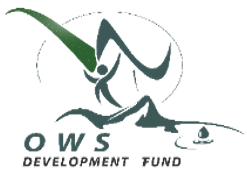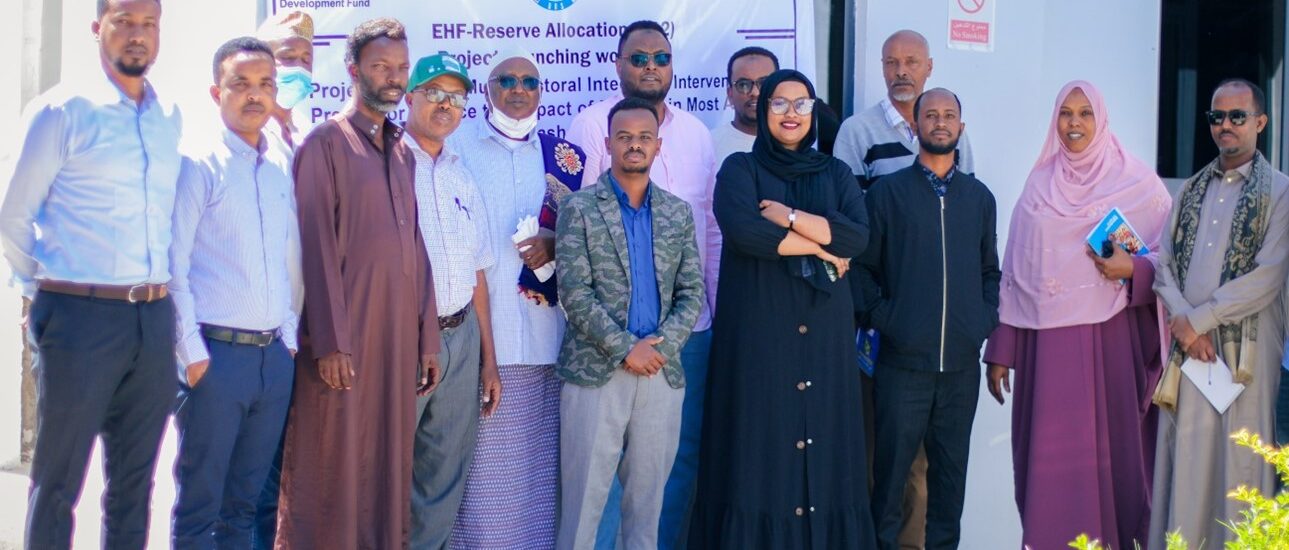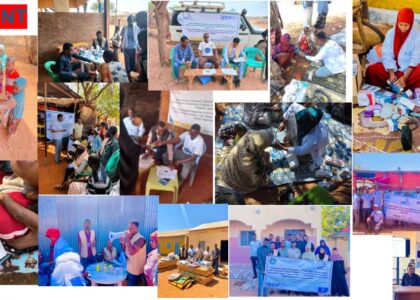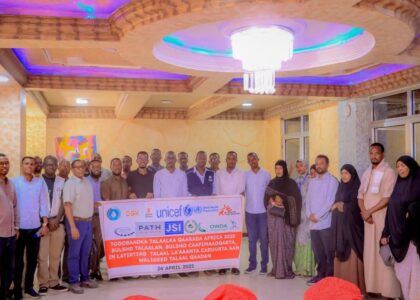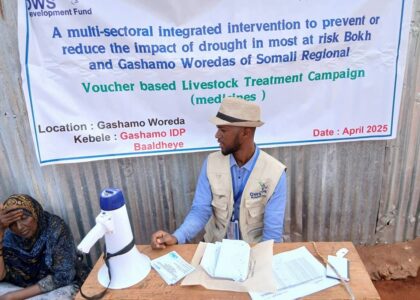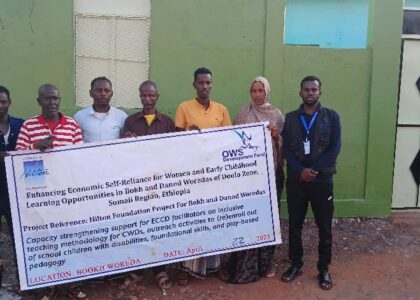Date: Nov 30, 2024
Venue: JCM Hall
Organized by: OWS – Development Fund
On November 30, 2024, OWS-DF proudly hosted a significant project launch workshop to introduce the EHF-RA2 Project officially! This initiative is dedicated to mitigating the impact of drought in the most at-risk communities while enhancing resilience through critical sectoral interventions.
The event united key regional and local leaders in their commitment to advancing sustainable solutions for vulnerable populations and fostering long-term resilience in underserved communities.
Distinguished Participants
The workshop was attended by a diverse and influential group of stakeholders, including:
- Regional Health Bureau (RHB)
- Disaster Risk Management Bureau (DRMB)
- Pastoralist Development Bureau (PDB)
- UN-OCHA
- UNWOMEN
Program Overview

The event’s opening remarks were delivered by our Executive Director, Mr. Aden Abdi, who extended a warm welcome to all participants, recognized their dedication, and expressed heartfelt appreciation for their engagement in this critical initiative. His words set a positive and purposeful tone for the day, officially marking the commencement of the event.

Following the opening, attendees were introduced to OWS-DF through an engaging and informative video presentation. The video provided a comprehensive overview of the organization’s mission, vision, and impactful achievements, offering participants a deeper understanding of our commitment to supporting vulnerable communities and driving sustainable solutions.
The focus then shifted to a detailed project presentation delivered by Mr. Mohammed, our Regional Program Head. His presentation offered an in-depth overview of the EHF-RA2 Project, outlining its objectives, expected outcomes, and a thorough breakdown of the budget.
The presentation highlighted the strategic allocation of resources aimed at addressing the needs of the most at-risk communities, with an emphasis on resilience-building measures to tackle both immediate and long-term challenges posed by drought.

Adding further depth to the program, the event welcomed brief but thoughtful contributions from key stakeholders representing the Regional Health Bureau, Disaster Risk Management (DRM), and the Pastoralist Development Bureau (PDB). Each representative shared their insights, applauded the launch of the EHF-RA2 Project, and expressed their strong support for its objectives. Their remarks underscored the critical importance of collaboration and reinforced a shared commitment to addressing the pressing needs of vulnerable populations.
This sequence of presentations and contributions provided a strong and informed foundation for the event. It ensured that all participants were aligned with the project’s vision and equipped with a clear understanding of its goals, fostering a collaborative atmosphere that set the stage for meaningful dialogue and collective action throughout the workshop.
Discussions

Ms. Maryan Osman, Our Programme Associate at OWS-DF, led the discussions. Her facilitation guided an engaging and insightful conversation, during which participants actively contributed their perspectives on the project’s implementation and the broader goals of improving immunization systems in underserved communities.
Mr. Maryan skillfully steered the discussions, ensuring all voices were heard and encouraging meaningful dialogue among stakeholders. Key topics included strategies for enhancing community engagement, addressing barriers to immunization, and exploring ways to align efforts across sectors for maximum impact. Her leadership in fostering an inclusive and solutions-focused environment was instrumental in shaping a productive exchange of ideas.
Closing Remarks

The event concluded with closing remarks from Ms. Lamia, Director of Ethics and Compliance at OWS-DF. She thanked all participants for their valuable contributions and active engagement throughout the day, emphasizing the collective commitment to the success of the EHF-RA2 Project. Ms. Lamia highlighted the importance of continued collaboration and the shared responsibility to create lasting, positive change for vulnerable communities.
She then formally closed the session, inviting all attendees to join for refreshments and networking. This allowed further informal discussions, fostering stronger connections and partnerships as participants continued to engage and share insights in a more relaxed setting.
Key Takeaways
- Collaborative Commitment: The event highlighted the importance of multi-stakeholder collaboration, with contributions from key representatives such as the Regional Health Bureau, DRM, and PDB, emphasizing the collective effort required to address the needs of drought-affected communities and improve immunization systems.
- Project Objectives and Impact: The EHF-RA2 Project is focused on mitigating the impact of drought in at-risk communities and building resilience through targeted sectoral interventions. It is designed to improve the long-term sustainability and well-being of vulnerable populations
- Resource Allocation: A detailed breakdown of the project budget demonstrated the strategic allocation of resources to ensure effective and impactful interventions. The thoughtful distribution of funds will ensure that key priorities are addressed, with an emphasis on sustainability and resilience-building.
- Engagement and Insight: The discussions provided valuable insights into the practical challenges and opportunities in implementing the project. Stakeholders shared ideas on community engagement, overcoming barriers, and fostering cross-sectoral collaboration.
- Shared Vision for Impact: The event reinforced a shared vision among all participants for creating sustainable, impactful solutions to the challenges faced by vulnerable communities, with a focus on resilience, health, and empowerment.
Conclusion
The workshop successfully set the stage for the EHF-RA2 Project, aligning key stakeholders and fostering a sense of shared responsibility. Through detailed presentations, engaging discussions, and strong collaborative input, participants gained a clear understanding of the project’s objectives, expected outcomes, and resource allocations. The event highlighted the importance of continued partnership and dialogue to ensure the success of this initiative.
With a clear direction and strong commitment from all involved, the project is poised to make a significant, lasting impact on vulnerable communities, enhancing their resilience and well-being for a brighter, more sustainable future. The networking and informal discussions that followed further strengthened these connections, paving the way for effective collaboration in the coming months.

